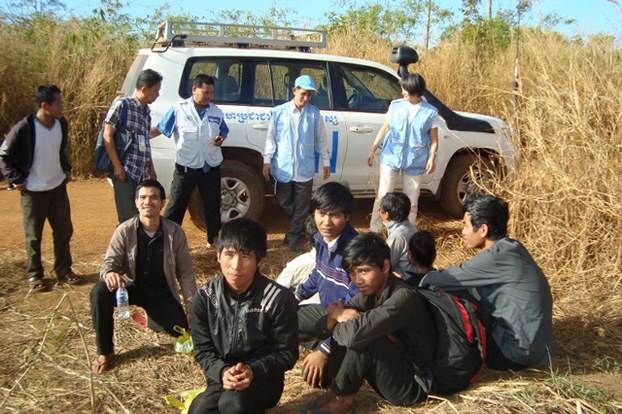




The Cambodian government has extended the deadline for the deportation of 13 ethnic Montagnard Christians who have obtained refugee status in the Southeast Asian nation if they do not find a third country in which to permanently settle by next January, prompting criticism from a domestic rights group.
The Montagnards, who fled from their homes in Vietnam’s Central Highlands a year ago to seek refuge in Cambodia from alleged persecution, were granted refugee status in March.
They have been staying in the capital Phnom Penh where the United Nations High Commissioner for Refugees (UNHCR) has been trying to find them a permanent third country in which to live.
The Ministry of Foreign Affairs issued a statement on Tuesday following a two-day meeting in Vietnam, extending the deadline by three months until Jan. 10 for the UNHCR to find another country for the Montagnards.
The original six-month period ended on Oct. 10 with the UNHCR failing to find a nation that would accept the 13 Montagnards, the statement said.
The government also extended the deadline for 200 other Montagnards in Phnom Penh, whose refugee claims it has refused to process, to return to Vietnam by early next February. Cambodia said last month that they had to return to Vietnam by mid-December or be forcibly repatriated.
The ministry also accused the UNHCR of bringing them into the country illegally so they could seek asylum.
Vivian Tan, the UNHCR’s regional spokesperson, told The Phnom Penh Post that the agency had not violated any laws and was continuing to try to find a third country for the Montagnards.
Suon Bunsak, executive secretary of the Cambodian Human Rights Action Committee, called Cambodia's move a serious violation of its obligation to assist refugees under a government decree.
“Before deporting the Montagnards, the government must comply with its sub-decree to evaluate them first to determine whether they are really [political] refugees or economic immigrants,” he said. “We must evaluate them accurately before deporting them.”
Cambodian authorities maintain that all the Montagnards who have crossed illegally into the country’s remote northeastern Ratanakiri province from Vietnam have been farmers who have come for economic reasons rather than political refugees.
The ministry said its decision complies with a memorandum of understanding signed by the government, Vietnam and the UN refugee agency in January 2005, which establishes the basis for the resettlement and repatriation of the Montagnards. The document requires the UNHCR to locate a third country for the Montagnards to settle in within six months after they are granted refugee status.
But in making its decision, Cambodia is protecting Vietnam’s reputation because the Montagnards have fled their home country on account of political persecution, Suon Bunsak said.
“The [Montagnard issue] has affected the reputation of Cambodia’s neighbor,” he said, adding that Cambodia has failed to take seriously its obligation to provide protection for the refugees before deporting them.
The UNHCR has assisted scores of Montagnards with trying to obtain refugee status in Cambodia. In other cases, however, local authorities have caught some Montagnards and deported them back to Vietnam, while others have returned home on their own.
Reported by Tha Kitya for RFA’s Khmer Service. Translated by Samean Yun. Written in English by Roseanne Gerin.